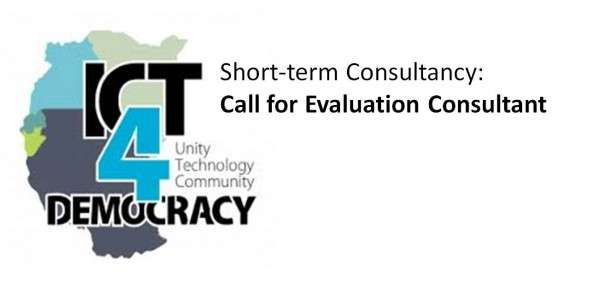The Collaboration on International ICT Policy in East and Southern Africa (CIPESA) is seeking an evaluation consultant to establish the achievements, outcome and challenges registered by the ICT4Democracy in East Africa Network during the period June 2016 to December 2018. The evaluation will assess the appropriateness, effectiveness and outcomes of the network in relation to the program objectives
Closing date for applications: 17:00 hours East African Time (EAT) on Friday December 7, 2018
Further details on the scope, eligibility and how to apply are available here.
mGovernance Workshop: Potential of Technology on Water Governance in Kenya
On July 5, 2012, iHub Research hosted a workshop aimed at engaging different stakeholders in Kenya’s water sector to identify and discuss current interactions between the stakeholders, understand how transparency, service delivery and citizen participation are currently being applied in the sector and identify the potential of mobile applications/platforms in promoting sustainable urban and rural water development.
Workshop participants were drawn from the government, the tech community, civil society, residents of various areas including the Kibera slums, media, academia and NGOs.
Water governance is the thematic focus of the mGovernance in Kenya Project.
Full insights from the workshop are available here. In addition, the report on technology use in Kenya’s water sector is also available for download here.
This article was published on July 24, 2012, about the ICT4Democracy in East Africa project, which brings together various partners in the region – among them CIPESA.
Digitalizing Democracy: Initiatives in East Africa
By: Caroline Wamala
A number of organizations in east Africa are using ICT to hold leaders accountable, fight corruption, monitor service delivery, and contribute to building a democratic culture. The East Africa ICT4Democracy Network, supported by Spider, was launched in June 2011 to enable the participating organisations to have stronger impact, build a more sustainable initiative, and further enhance people’s capacity to act and participate in democratic processes.
Participating organisations are:
- iHub, Kenya
- Women of Uganda Network,
- Kenya Human Rights Commission,
- Transparency International, Uganda
- Commission for Human Rights and Good Governance
- Collaboration on International ICT Policy for Eastern and Southern Africa, Uganda
For further information about the projects, visit www.ict4democracy.org.
The core problem is that despite the concerted efforts by international agencies, governments and local donors, ignorance prevails about human and citizen rights among the majority of communities. This perpetuates a culture of poor or bad service delivery across all sectors.
“In the developed world generally everyone is aware that water is a human right, health is a human right, in sub-Saharan Africa, or east Africa, people are unaware of these rights, clean water, or access to health is seen as a favour.”
Ashnah – CIPESA at M4D2012 New Delhi
Informing people about their rights to government services is the first step to engaging communities in holding their government accountable to better service delivery.
“So we are not just demanding accountability, we are making communities aware that you are entitled to freedom of expression, entitled to clean water, health etc. so we are engaging them, and they are participating, they are knowledgeable…we are going beyond survellieng and hold someone accountable.”
Ashnah – CIPESA at M4D2012 New Delhi
Are ICTs the road to democracy? While ICT can raise awareness on good governance, spread information on human and citizen rights and help monitor service delivery, it is “merely an amplifier, that acts within the environment it is embedded in. ICT is not the panacea none of our projects think or say that technology is the answer, technology is probably solving 5% of the problem, the other 95% requires us as a people to come together. As long as the cohesion and symbiotic relationships in this network continue these projects will explode into some serious change and become sustainable, we are working together and mobile technology is creating effective change and the same model can be applied in other places, we are building something by learning from each other.”
Angela and Hilda – iHub at the M4D2012 Conference in Delhi
Caroline Wamala is Project officer at Spider and post-doc researcher at Karlstad University.
This article was published by the Swedish Programme on ICTs for Developing regions (SPIDER) on April 18, 2012, about the ICT4Democracy in East Africa project, which brings together various partners in the region – among them CIPESA – Editor

